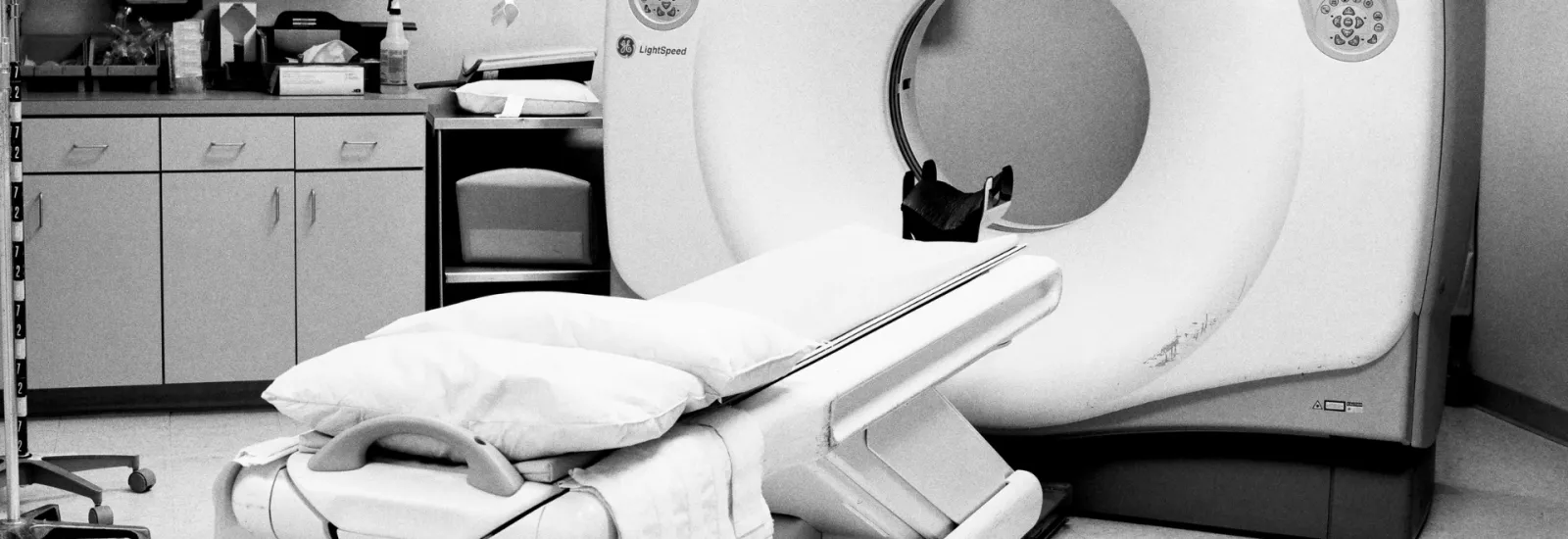
Do you have an upcoming CT scan? Here’s what to expect.
CT (or computed tomography) scans are commonly used to
noninvasively see internal organs, bones, soft tissue, and blood vessels.
Doctors use diagnostic imaging like CT scans to help learn more about what's
going on inside your body. Your doctor might order a CT scan to help diagnose
and treat symptoms you are experiencing.
Here are three things you should know about CT scanning.
- A CT scan
is a specialized type of
X-ray that uses a special,
donut-shaped X-ray machine. The
machine takes pictures as it rotates within the donut shape (called a "gantry")
and around a body part. Sophisticated computers then compile and render the
images, giving doctors a product that shows a cross-section or "slice" of the body. Reid
Health's CT scanning machines are state-of-the-art, and maintained regularly to
the highest standards of performance, which provides your doctor with accurate
and reliable images.
- During the scan, you'll need to lay still inside the CT scan machine for a few minutes. The test is quick and painless. If you think you might get nervous about being in the machine, be sure to let your doctor or the radiology technologist know so they can help.
- Your doctor might order a test with "contrast." Contrast fluid is a special type of fluid that shows up on X-ray images. This contrast fluid can be given orally, intravenously, or both. Whether or not your doctor requests contrast imaging often depends on the symptoms you are experiencing or condition your doctor is trying to diagnose. You should let your doctor know if you are allergic to iodine-containing contrast.
What is the process of getting a CT scan at Reid Health?
Here's what to expect during your CT scan:
- Your
doctor will discuss the CT scan with you. At an appointment with your doctor, they will discuss how a CT
scan (with or without contrast) could help diagnose your symptoms. Feel free to
ask your doctor any questions that occur to you about the test, the process, or
what it could help show. If you feel anxious about the test, this is a great
time to share that with your doctor; they can order medications and offer
advice that can help alleviate your anxiety.
- Your
doctor will order the test from a separate department, Radiology Services. The radiology services team will be the ones to perform your test.
- Schedule
your test. Depending on who your
doctor is, they may have you work with the central scheduling department or
directly with your doctor's staff to schedule your test. When
scheduling, you can choose a time that works well for you.
- Your
doctor's office will coordinate details of your test with your insurance
company. Most of the time, this
happens without you needing to do anything. However, if you have questions
about out-of-pocket costs or approvals, this is a great time to reach out to
your insurance provider to learn more.
- A
radiology technologist may call you to explain the test procedures and help you
prepare for the test. If your
test has been ordered with a contrast agent or if you have shared with your
doctor that you expect to feel nervous, a technologist will reach out to you to discuss any special
preparation steps necessary and make sure you have the information you need to
feel ready.
- On test day, arrive at your appointment time to register for your test. Make sure you bring your ID and insurance card. Staff will help you register for your test, collect patient information, and answer any questions you have about your test.
- Get ready for your test. With the help of a technologist, you'll prepare for the test. Depending on the area of the body you're having imaged, you might need to change into a gown. If your doctor has ordered a test with contrast, the technologist will place an IV, through which the contrast fluid will enter your veins.
- Have the testing done, following the technologist's instructions about what to do during your test. The technologist helping you will provide you with specific instructions about what you'll need to do during the test. With a CT scan, this usually involves lying still on an exam table while the machine takes pictures. Based on the imaging needs, the exam table may move during the process; this is normal. Always remember that the technologist can answer any questions you have about the test process, so don't hesitate to ask.
- Head home and wait for results. A specialized doctor, called a radiologist, will review the images, interpret the results, and report them to your doctor. In most cases, you won't receive your test results at the imaging facility. Your doctor's office will call you in the next few days to discuss your results and schedule any follow-up appointments needed.
Always remember that it's normal and okay to have questions about
what's going to happen during the CT scan process - everyone on the Reid Health
team is there to help you through the process. Having a good understanding of
the process can help you feel more in control and focused on the results.
For more information about precision diagnostic imaging or Reid Health's capabilities, visit Reid Health Radiology Services.

